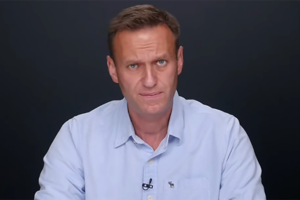EU expands sanctions against Russians over Navalny poisoning

The European Union has introduced the names of eight Russians and two Canadians into the regulation on restrictive measures against the spread and use of chemical weapons, follows from a document published in the official journal of the EU.
The sanctions list includes individuals whom the EU considers either associated with the poisoning of opposition leader Alexei Navalny in August 2020, or with the use of chemical weapons in Syria, among them:
Alexey Alexandrov (also known as Alexey Frolov). The EU believes that he was a direct participant in the poisoning of Navalny. Vladimir Panyaev (also known as Vladimir Alekseev) - as a direct participant in the poisoning, according to the EU. Ivan Osipov (also known as Ivan Spiridonov) - The EU considers him to be a direct participant in the poisoning. Artur Zhirov is the director of the Signal Research Center. Kirill Vasiliev is director of the FSB Institute of Criminalistics. Konstantin Kudryavtsev (also known as Konstantin Sokolov). Stanislav Makshakov, whom the EU calls the deputy director of the FSB Institute of Criminalistics. Vladimir Bogdanov, whom the EU calls the head of the FSB Center for Special Technologies.Navalny's poisoning with "Novichok" was confirmed by experts from France and Sweden Politics
Navalny became ill on August 20, 2020, when he flew on the Tomsk-Moscow route. The plane was urgently landed in Omsk, where the oppositionist was hospitalized. Two days later, he was transported to Germany, where he received treatment at the Berlin clinic "Charite".
German doctors concluded that Navalny was poisoned with a substance from the group of cholinesterase inhibitors. The military laboratory of Germany soon confirmed the presence in the body of the oppositionist of traces of poisoning with poison from the Novichok group, scientists in Sweden and France agreed with these conclusions.
In December of the same year, CNN published an investigation stating that eight people who the publication considered to be FSB officers could be involved in the attempt on Navalny.
How Feeling Overwhelmed Is Ruining Life Will the fittest or the friendliest survive? How the experience with foxes helped with the answerRussian President Vladimir Putin called the publication "the legalization of materials from American intelligence agencies." “This patient of the Berlin clinic, he enjoys the support of the US intelligence agencies in this case. If so, then it is curious, then the secret services, of course, should look after him. But this does not mean at all that it is necessary to poison him, who needs him, ”added the President of Russia. The FSB denied involvement in Navalny's departure, while the Foreign Ministry considers the poisoning of the politician "a planned provocation by Western countries."


























































